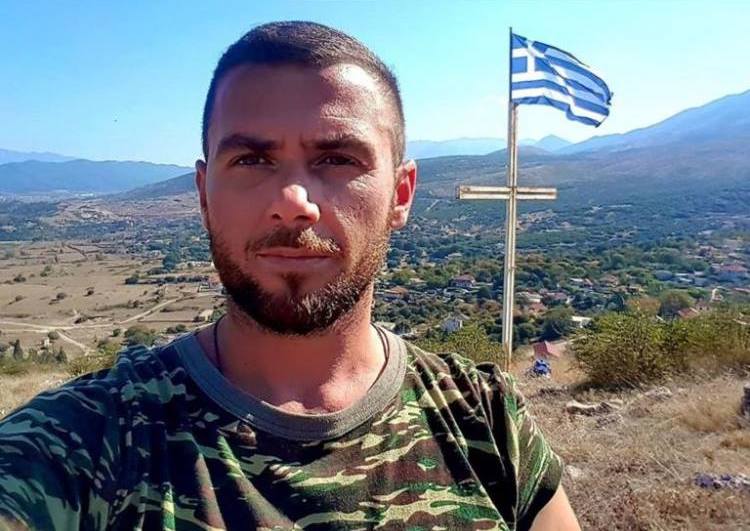A 35-year-old Greek, named Konstantinos Katsifas, was shot dead by the Albanian special forces near the village Bularat (Vouliarates) in Albania’s northern Epirus region, 6 kilometers (4 miles) from the Greek-Albanian border.
According to Albania’s Top-channel portal, the 35-year-old used a Kalashnikov to shoot toward the Albanian police forces who re-moved a Greek Flag Konstantinos Katsifas had raised every year on the ”OXI Day” celebrations in the village solely inhabited by Greeks.
According to a statement issued by the Albanian police, when Katsifas was found, he refused to surrender and started shooting toward the policemen, who, in return, shot him dead.
The political organization “Omonia”, representing the Greek ethnic minority in Albania, is describing the shooting of Konstantinos Katsifas as an “execution” by Albanian Police on Monday.
According to reports, Special Forces of the Albanian police who were in the village, apparently there for security reasons, at a Greek Military Cemetery for Greek soldiers that died in the Greek-Italian War memorial, tried to lower a Greek flag, causing Katsifa’s to quarrel with them. The Greek Minority in Northern Epirus a region occupied by Albania, according to the protocol of Corfu ( The Protocol of Corfu (Greek: Πρωτόκολλο της Κέρκυρας, Albanian: Protokolli i Korfuzit), signed on May 17, 1914, was an agreement between the representatives of the Albanian Government and the Provisional Government of Northern Epirus, which officially recognized the area of Northern Epirus as an autonomous self-governing region under the sovereignty of the prince of the newly established Principality of Albania.[1] The agreement granted the Greeks of the districts of Northern Epirus, wider religious, educational, cultural and political autonomy, inside the borders of the Albanian state). According to this protocol the Greek Minority has the right to Fly the Greek Flag on Ethnically significant days. When the Albanian Police threatened him, he went to his house and returned with a Kalashnikov and began to shoot in the air.
Konstantinos Katsifas was an ethnic Greek who was born in the village of Vouliarates but was currently living in the Greek capital of Athens, according to Associated Press.
Katsifas recently posted on his personal account on Facebook a picture of himself, calling ”all the Greeks of Northern Epirus to send a message in all directions during the celebrations of ‘OXI Day’ on October 28”.
The Albanian Police posted a picture of the cars that Katsifas allegedly shot during their efforts to arrest him, before he attempted to escape in the nearby mountainous area.
The Greek Foreign Ministry, in a statement issued on Sunday evening, expressed its condemnation and stated that ”it is unacceptable that the operation led to the death of the Greek citizen” and demanded from the Albanian authorities to clarify the exact circumstances under which the fatal incident took place.
The questions posed by himara.gr
The first photos of the journalists who were directly on the spot, since they were attending the October 28th ceremony at the Greek military cemetery, showed no patrol Car had been hit by Katsifas’s Kalashnikov.
Since then photos appeared of the bullet ridden Patrol car were broadcast. One wonders how no one was shot since it had bullet holes on both sides. How do you escape from someone who aims at you with a Kalashnikov and shoots from two direction at the vehicle? If he had turned the Kalashnikov toward the Police what prevented him and caused him to failed to kill them if he really wanted to?
When he was surrounded by the police, responding to their fire didn’t anyone think he would run out of ammunition and therefor an arrest would be easy? Even at that moment if he had wanted to kill a policeman from the many that had surrounded him would it not be plausible that he could have done so?
There are unclear circumstances and some news sources are alleging an execution style killing to send a message to the Greek minority.


